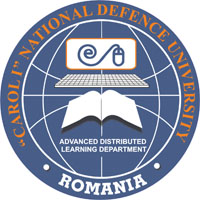FROM LOG-IN TO LOG-OUT: AN EDUCATIONAL AUDIT OF ONLINE COURSES IN TEACHER TRAINING
FROM LOG-IN TO LOG-OUT: AN EDUCATIONAL AUDIT OF ONLINE COURSES IN TEACHER TRAINING
Author(s): Simona IFTIMESCUSubject(s): Education
Published by: Carol I National Defence University Publishing House
Keywords: educational audit; e-Learning; teacher training
Summary/Abstract: The paper aims at contributing to a better understanding of the field of professional training of teachers in higher education through an analysis of this field as reflected in online courses and certifications. In order to do so, the paper aims at expanding the theoretical framework dedicated to quality assurance in education by adopting the concept of "educational audit" and by proposing specific procedures and instruments which guide the analysis. Moreover, the paper attempts at finding an answer to whether educational policies are translated into the online learning environment and to how, given the cross-border character of this field, online learning contributes to internationalizing education. Educational systems function based on a set of rules, regulations and policies - some of which are obsolete and others which prove difficult to implement. Given the context, before attempting to issue specific "regulations" to the online learning environment and agreeing on a quality assurance instrument, an analysis must take into account the specificity of this field and offer an honest radiography of what could, perhaps, become an alternative transnational educational system. Therefore, the first part of the paper is dedicated to setting the theoretical framework, comprising of three dimensions: the process of formulating educational policies and how this could be applied to online courses, a brief overview of literature in the field, as well as placing educational audit for the online learning environment (given the courses are recognized by accredited national or international bodies). The theoretical context is enriched by best-practices' examples or particularities of the aforementioned dimensions. In order to ensure the coherence of the analysis and the possibility to replicate the initiative, an auditing procedure is proposed, doubled by forecasts in the development of this field. Lastly, recommendations will follow the analysis, leaving an open-ended question: how does e-Learning change the educational paradigm?
Journal: Conference proceedings of »eLearning and Software for Education« (eLSE)
- Issue Year: 11/2015
- Issue No: 03
- Page Range: 49-53
- Page Count: 5

